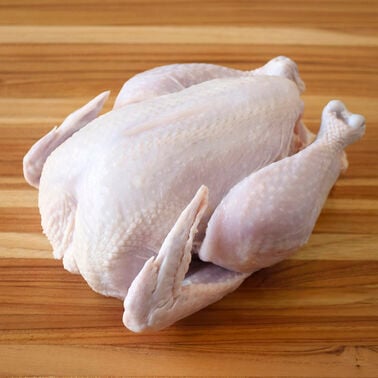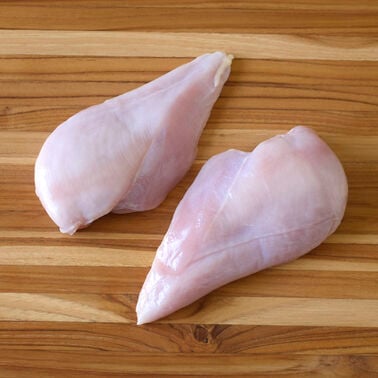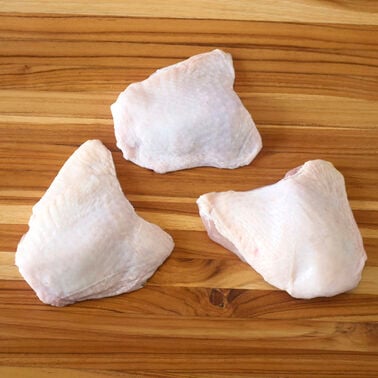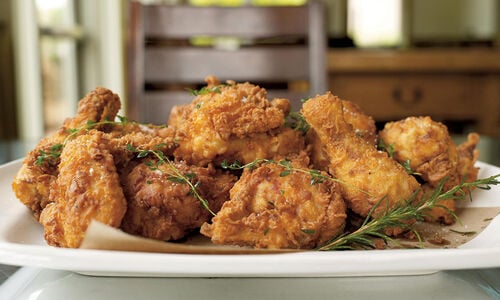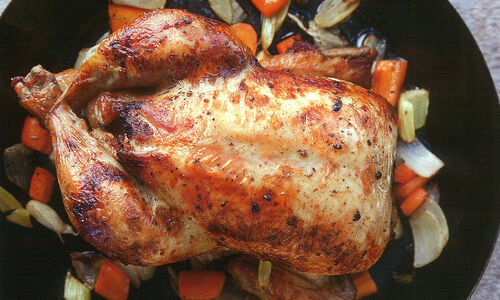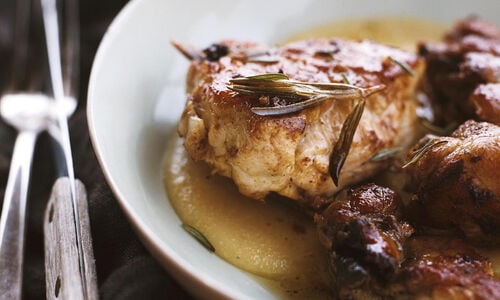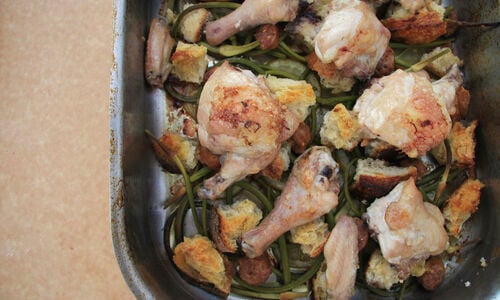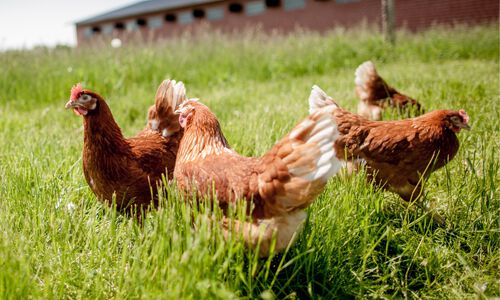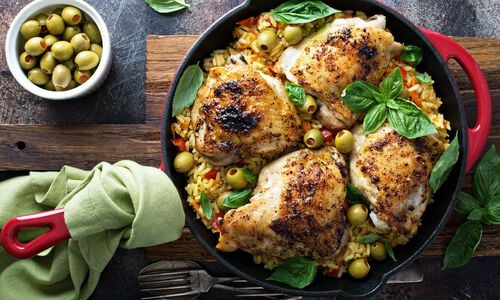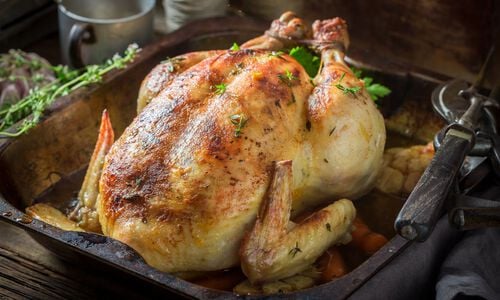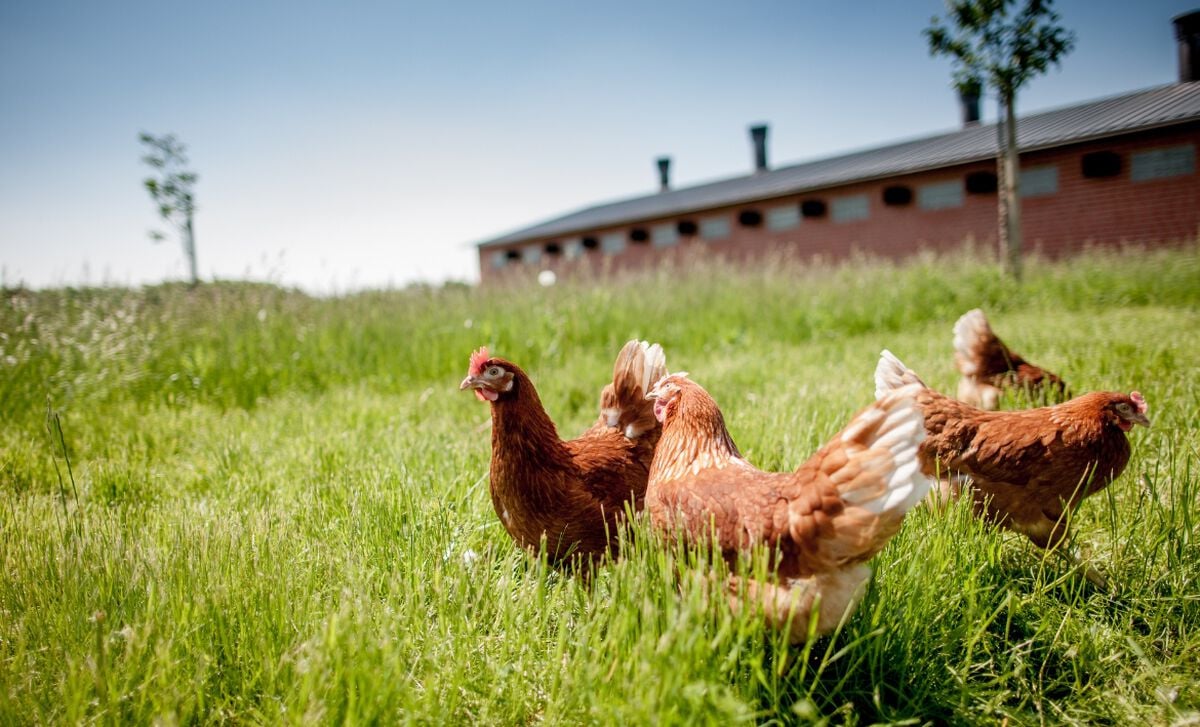
Confusing Labels
Browsing the poultry section at your local supermarket, you're likely to see labels boasting “free-roaming” and “all-natural” chicken. But don't be fooled by these marketing ploys: the USDA does not recognize these terms as official classifications. Most chicken producers do not share our passion for ensuring quality, so they resort to these misleading labels.
The Sad Truth
Conditions in conventional chicken farms are inhumane and unsustainable; these farms use cheap feed and cramped conditions to boost efficiency. They are more like chicken factories than farms, producing chickens en masse. Because of selective breeding, their chickens grow quickly and are usually ready at the 5-6 week mark (roughly half the time it takes an organic chicken to grow). The meat on their bodies grows disproportionately faster than their bone structures, sometimes resulting in chickens that are too weak to support their weight. Often, these chickens are confined to spaces no larger than a standard sheet of paper for most of their lives.
Because of the crowding and filth, these chickens are often given a low dose of prophylactic antibiotics so they survive the ordeal. This has created a troubling public health issue because the proliferation of antibiotics has created drug-resistant strains of bacteria. According to the Federal Interagency Task Force on Antimicrobial Resistance, “[t]he extensive use of antimicrobial drugs has resulted in drug resistance that threatens to reverse the medical advances of the last seventy years.”
Our Organic Chicken
At D'Artagnan we believe this is simply not ethical, nor is it an effective way to produce quality food. We are proud to support farmers who are committed to responsible animal husbandry because it yields the best product most humanely. Reared in the bucolic setting of Pennsylvania Dutch country, our chicken meets the USDA standards for organic and free-range certification.
What Does Organic Mean?
For a chicken to be certified as “organic” it must be fed only organic grains, chlorine-free spring water, and no genetically modified organisms (GMOs), no animal by-products, protein supplements, growth hormones, tranquilizers, or antibiotics. The USDA's “free-range” designation requires that chicken be allowed to reach the minimum age of 8 weeks and that it forage freely, with access to the outdoors and natural light. Also, the chicken must be housed in a shelter that affords at least 1.5 square feet per bird.
We are happy to promote this method of chicken rearing because we know it results in a healthier, leaner, and better-tasting bird. Our organic free-range chickens have a rich, buttery, and savory taste, with a distinct texture that you’re bound to enjoy. We recommend preparing a traditional coq au vin or chicken and tarragon. No matter how you prepare our organic, free-range chicken you will be supporting humane, sustainable farming and eating a chicken that is part of the solution, not the problem.
